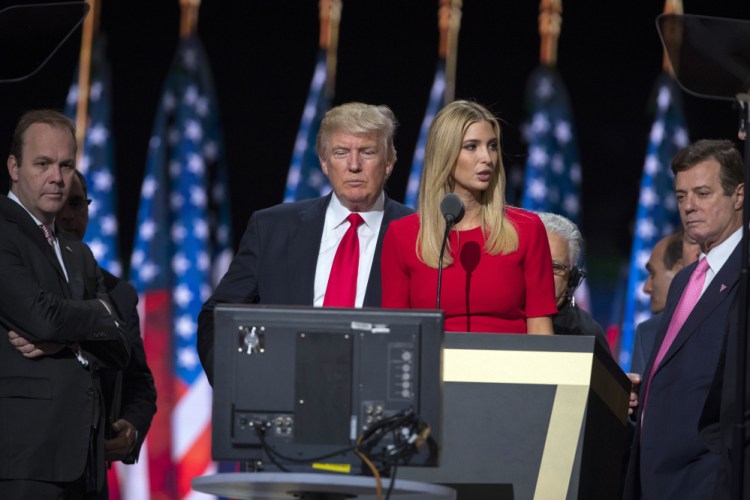The one-two punch delivered Monday by special prosecutor Robert Mueller – an indictment of President Donald Trump’s former campaign chairman and a guilty plea from a former campaign adviser – is designed to send a powerful message to everyone else caught up in the probe: the prosecutors aren’t bluffing.
“This is the way you kick off a big case,” said Patrick Cotter, a white-collar defense lawyer in Chicago who once worked as a federal prosecutor in New York alongside Andrew Weissmann, who is spearheading the prosecution of former Trump campaign chairman Paul Manafort and his deputy, Rick Gates.
On the same day the indictment was unsealed, prosecutors also announced a guilty plea and cooperation from former campaign adviser George Papadopoulos about his interactions with people linked to the Russian government. Papadopoulos has admitted to lying to FBI agents who questioned him about those contacts, according to court records.
“Oh, man, they couldn’t have sent a message any clearer if they’d rented a revolving neon sign in Times Square,” Cotter said. “And the message isn’t just about Manafort. It’s a message to the next five guys they talk to. And the message is: ‘We are coming, and we are not playing, and we are not bluffing.'”
Cotter pointed to several details in the Manafort indictment that suggest how steep a climb it will be to beat the charges. First, $18 million in alleged money laundering carries the likelihood of many years in prison under federal sentencing guidelines. Second, the charges may be tough to defend because they involve not reporting bank accounts on tax forms for multiple years. And finally, the indictment goes out of its way to kneecap a standard defense argument in such cases – that the defendant got bad advice from their accountant.
The indictment charges that Manafort wrote specifically to his accountant that he did not have such accounts.
“In fighting these kind of cases, the first line of defense is usually, ‘My accountant should have told me,’ or something like that,” Cotter said. “Here, the prosecutor is sending a shot across the bow, saying, ‘Don’t even try it.’ And even a really good lawyer will have a hard time getting past that.”
Cotter said that if he were one of the lawyers for the subjects in the Mueller probe, “I would be telling my clients, ‘This is real, and whatever hope we had that maybe they wouldn’t get anywhere, those rosy scenarios, we need to forget that.'” Prosecutors, he said, “have now primed the pump, but that doesn’t mean they will get all the way to the top.”
As important as the Manafort indictment is, the Papadopoulos plea “is a big deal,” said Peter Zeidenberg, a former federal prosecutor with expertise in national security, that “goes much closer to the issue of collusion.”
And the fact that he’s been cooperating for three months is important, too, he said. “Who else is cooperating that we don’t know about? That’s what people in the White House need to be worried about.”
Nick Akerman, a former assistant special Watergate prosecutor, said the court filings “all spell bad news for Trump.”
Akerman said he could not see any defense to the Manafort indictment.
“He has no choice but to plead guilty. That’s what the indictment says to me,” he said. “The only defense that you’ve got is to go in there and start singing like a canary to avoid jail time. And once he starts singing, one of the tunes is bound to be Donald Trump.”
But Jay Nanavati, a former Justice Department tax prosecutor, said the filing of the indictment shows that so far, prosecutors have “not been able to convince Manafort to cooperate, but this is still how you start moving up the ladder in any organization.”
What’s striking about the indictment, Nanavati said, is the number of people who worked for Manafort – accountants, lawyers and others – who provided key evidence against him. And the unidentified lobbying firms, he said, “are in significant trouble” because of the written exchanges referenced in the indictment alleging that some people at the firms were aware that Manafort was lying about their work together.
Nanavati said a key change in U.S. tax enforcement that began in 2008 – going after foreign bank accounts controlled by Americans – probably played an important role in the case against Manafort. Before the Justice Department started cracking Swiss banking secrecy in 2008, he said, the requirement on Americans to declare foreign bank accounts was on the books but “basically, nobody ever did it, and almost no one ever got prosecuted for it. That changed in 2008, and tax-return preparers started asking.” With the decline of bank secrecy, Nanavati said, crimes such as tax evasion and money laundering through foreign accounts became harder to hide.
Send questions/comments to the editors.


